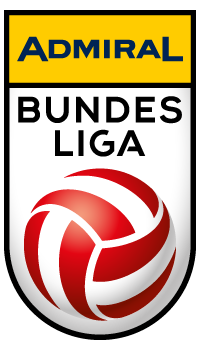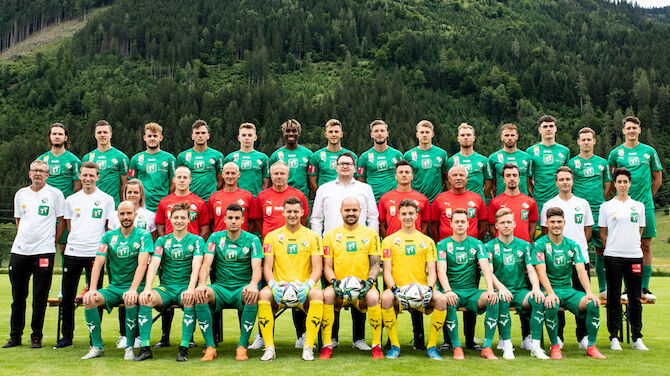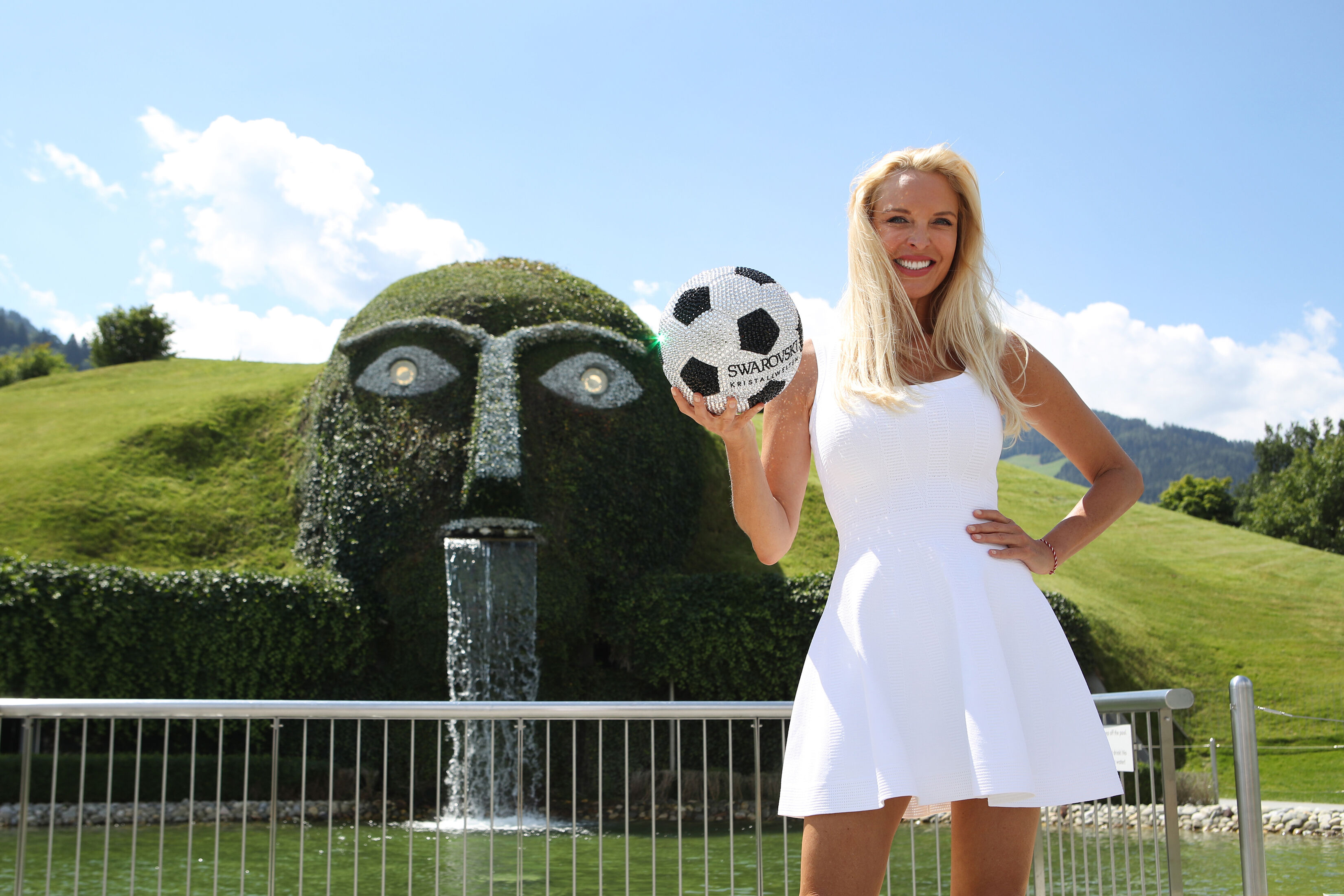Founded: 1930 (as SC Wattens)
Home ground: Gernot Langes Stadion (groundshare at Tivoli Stadion Tirol)
Location: Wattens, Tyrol (groundshare in Innsbruck)
Colours: Green/White
Manager: Thomas Silberberger
Website: www.wsg-fussball.at
The history:
Founded as SC Wattens in 1930, the club currently known as WSG Tirol has undergone reinvention, renaming and re-emergence throughout its long and winding history – but has always represented its spiritual home of Wattens in one way or another. A partnership with FC Wacker Innsbruck in the 1970s produced a wildly successful period, winning four Austrian Bundesliga titles and four Austrian Cups, as well as an appearance in the European Cup quarter-final. The club returned to the top flight in 2019 under the tutelage of long-serving manager Thomas Silberberger and shocked many by finishing sixth in 2021. On June 21st 2021, the club renamed itself to WSG Tirol after the departure of long-term club sponsor Swarovski.
Foundation and the early years
Nestled in a beautiful part of the Lower Inn Valley in North Tyrol, the Green and Whites of SC Wattens initially played in Tyrol’s Landesliga whilst going through three name changes until the outbreak of World War II which saw the club pause operations for five seasons. In 1953 SV Wattens won the Tiroler Landesliga - the first of many third division titles - to see the club elevated to the second tier Arlbergliga where they established themselves for 14 consecutive seasons. It’s fair to say, from here, that locals in Wattens had no idea what was about to come.
Bundesliga dreams crystalised by Gernot Langes
The fortunes of football in Wattens were altered overnight on July 7th 1967 with the arrival of renowned local businessman Gernot Langes. Langes was the great-grandson of Daniel Swarovski, the founder of the globally famous jewellery company based in the town. The freshly named WSG Swarovski Wattens sauntered to the Regionalliga West title 10 points clear of their nearest rival and were promoted to the Bundesliga for the first time in club history - a sensational achievement for a “village club” from a place with 6,000 inhabitants. The club strengthened with the arrival of Austria national team star Helmut Redl and sensationally managed to beat reigning champions Rapid Vienna in Hütteldorf during that first campaign. Creditable seventh and eighth place finishes followed under the stewardship of ex-Austria boss Edi Frühwirth and star man Hans Küppers, before a merger with neighbours Wacker Innsbruck shook the foundations of Austrian football.
Silverware and Europe: The Golden Era fusion with Wacker Innsbruck
In 1971, the club entered a first-team syndicate with newly-crowned Bundesliga champions Wacker Innsbruck to unify the efforts of Tyrolean football on a national stage, whilst keeping a junior team in the amateur Gebietsliga. All of Wattens’ star players transferred to the new syndicate and what followed was simply sensational.
SPG Wattens-Wacker Innsbruck (in short, SSW Innsbruck) became the most successful Austrian team of the 1970s with four Bundesliga titles and four ÖFB Cup triumphs, including doubles in 1973 and 1975. On the continental stage, they were two-time winners of the Mitropa Cup. However, in the European Cup there were five consecutive seasons of false starts (losing to Benfica, Dynamo Kyiv, CSKA Sofia and Borussia Mönchengladbach on two occasions), but the 1977-78 season saw SSW Innsbruck reach its zenith to dispatch Basel and former winners Celtic to reach the quarter-finals – only the fifth time an Austrian club had reached this stage - before losing out to Borussia Mönchengladbach once again.
Whilst the first team was all-conquering, the junior side had won two consecutive Tiroler Landesliga titles in 1976 and 1977.
The end of SSW Innsbruck & the yo-yo years
After the European heights of 1977-78, the syndicate suffered financial difficulties and notable departures, going from being league champions in 1977 to relegation in 1979. They were promoted back to the Bundesliga in 1981 and enjoyed four consecutive top five finishes and lost two ÖFB Cup finals but weren’t able to recapture the magic of the previous decade. Simultaneously, the WSG Swarovski Wattens junior side advanced to the second division from 1982 to 1985.
For SSW Innsbruck, the economic situation worsened and in 1986 WSG Swarovski Wattens and Wacker Innsbruck decided to go their separate ways and dissolved the syndicate.
Now back on their own, WSG Wattens spent much of the next twenty years bouncing back between the second tier and third tier, with three non-consecutive spells in the second division from 1989-1994, 1995-1998 and 1999-2001, bouncing back immediately after each relegation.
In 2002, the top of Tyrolean football was shuffled once again with WSG Wattens joining forces with the newly-formed FC Wacker Tirol – the successor club to the recently defunct FC Tirol – immediately becoming Regionalliga West champions. With promotion came the dissolution of the partnership and WSG Wattens returned to the fourth tier Tiroler Liga, which they won in 2005.
Regionalliga West dominance to Bundesliga
With a place restored in the Regionalliga West, WSG cemented themselves as one of the best clubs in the division and in 11 seasons finished in the top three nine times. In 2011, they came a hairbreadth from the second division after losing on penalties to Blau-Weiss Linz in the Relegation Play-Off. They followed this in 2012 by winning the title without losing a single game, only to be beaten by SV Horn in the Play-Off. In 2013, on his 70th birthday, after a remarkable 46 years in charge of the club Gernot Langes relinquished control of the club to his daughter Diana who immediately declared the intention to rise up to the Bundesliga. One month prior, Thomas Silberberger joined the club as manager from FC Kufstein.
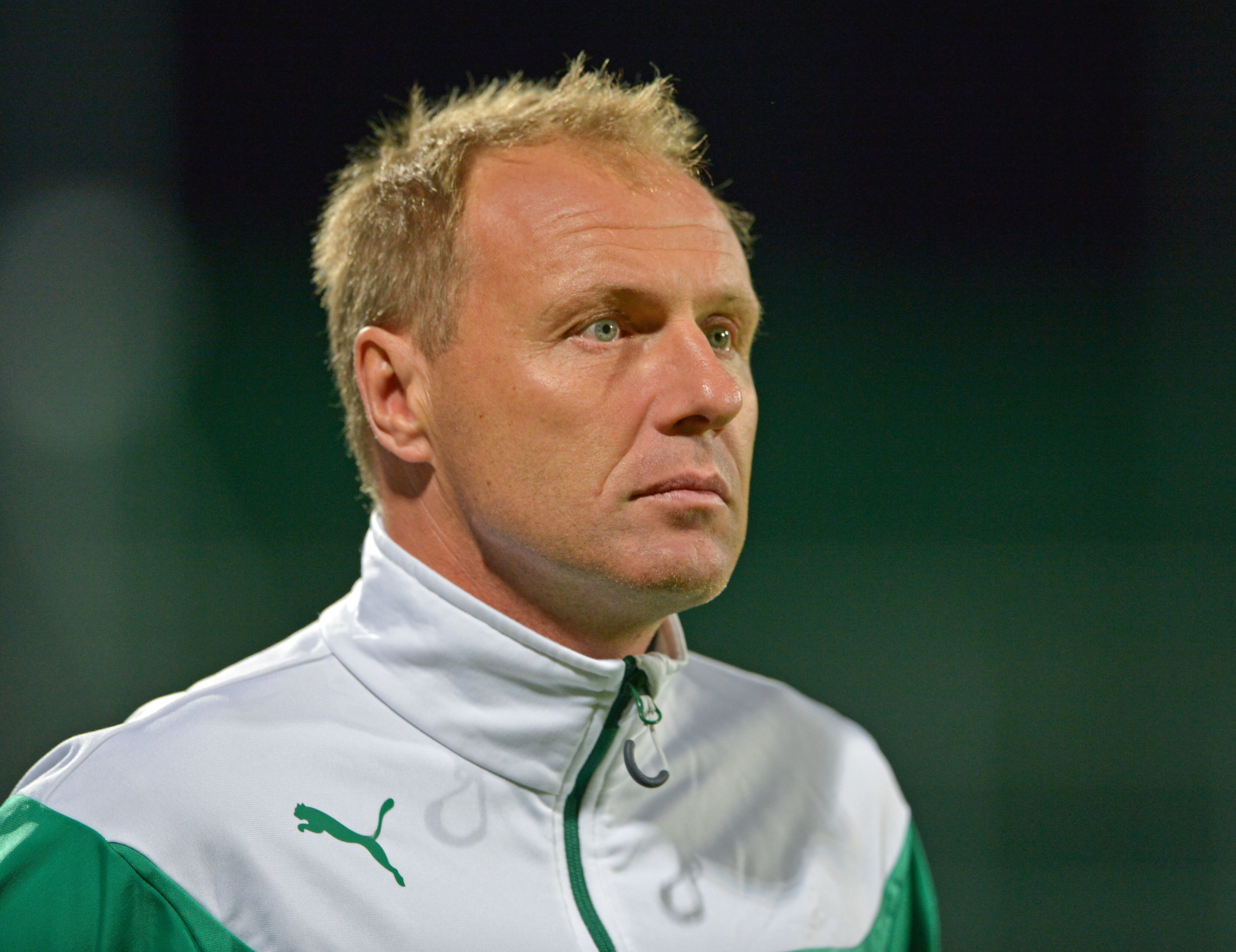
In 2015/16, the 15-year journey back to the second tier was finally achieved after winning the Regionalliga West by 18 points. After a finishing fifth and seventh, the dream of Diana Langes-Swarovski was achieved and WSG Swarovski Wattens were promoted to the Bundesliga in 2019. Shortly after promotion, the club were renamed WSG Swarovski Tirol. In their return season, they struggled and finished bottom of the table – only to be reprieved after the insolvency of SV Mattersburg.
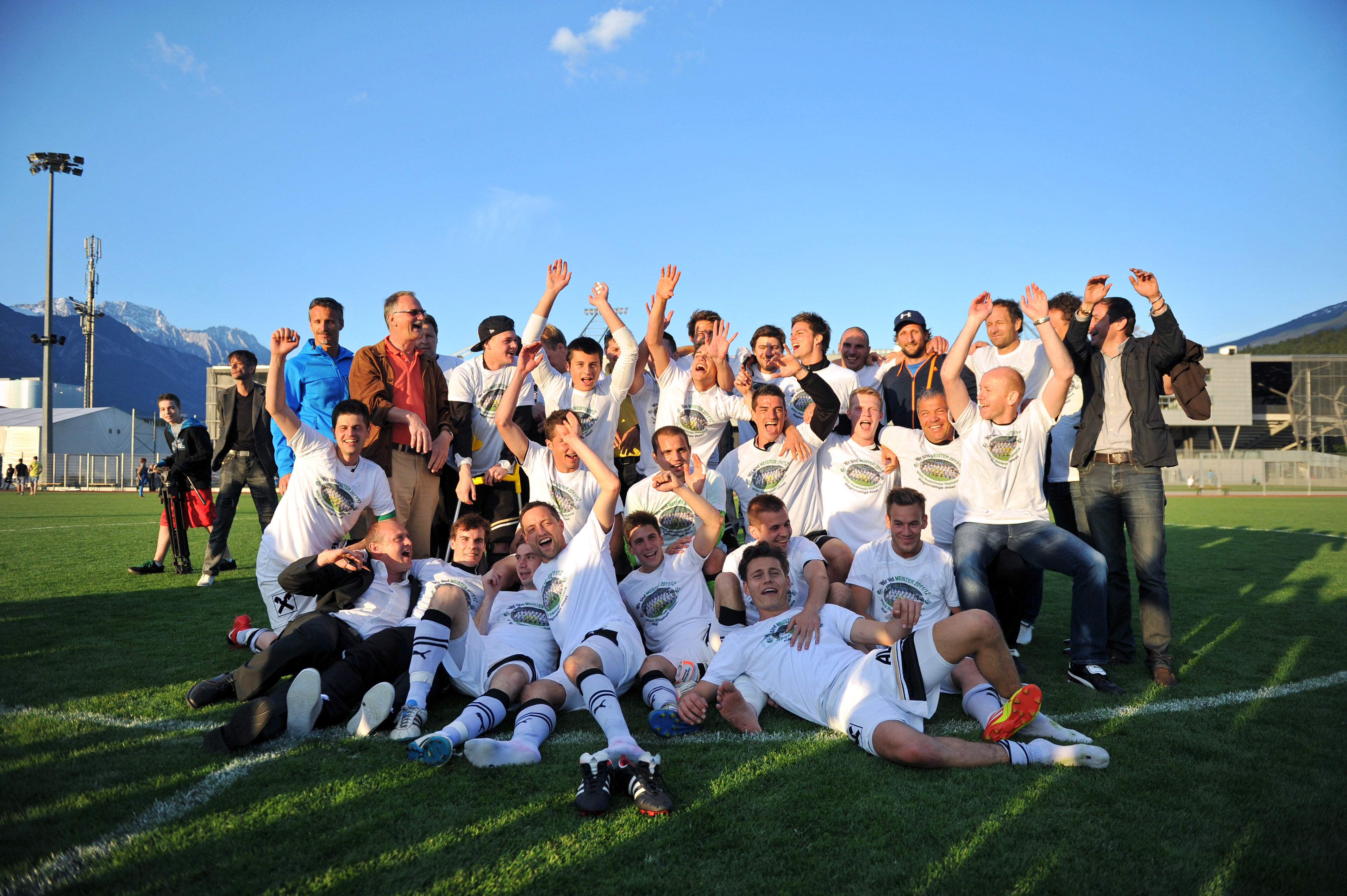
In 2020/21, spearheaded by Danish sensation Nikolai Baden Fredericksen, WSG Tirol shocked many by dramatically qualifying for the Championship Group despite being heavy favourites for relegation. Despite the expectations of being “whipping boys”, WSG produced famous victories against Red Bull Salzburg and LASK to finish sixth at the end of the season – the club’s highest ever finish on its own. Now in its third season back in the Bundesliga, the club were renamed in June 2021 to WSG Tirol due to the exit of long-term sponsor Swarovski from the club.
The stadium:
Due to renovation work after being promoted to the Bundesliga, the club has played at Innsbruck’s Tivoli Stadion Tirol since 2019. The 16,008-seat arena was opened in 2000 and belongs to a sports and event area of the city called OlympiaWorld Innsbruck and is the home of FC Wacker Innsbruck and the three-time European Champion American football side SWARCO Raiders Tirol. In December 2002, it was announced that Austria had won the bid to co-host the 2008 UEFA European Championship with Switzerland and that Innsbruck would be a host venue. The Tivoli was expanded to a capacity of 31,600 for the duration of the tournament at a cost of over €30m and reverted back to its current state afterwards.

The spiritual and historic home of WSG Tirol is the picturesque Gernot Langes Stadion. Opened in June 1959, the Alpenstadion Wattens (as it was known) was considered the most modern sports facility in western Austria at the time. In 2013, it was renamed to the Gernot Langes Stadion after the club’s legendary president to celebrate his 70th birthday. Despite the club’s great wish to return to their home in Wattens, the necessary additions to the stadium were not accepted by local residents and have yet to be implemented. For the foreseeable future, the club will remain in Innsbruck.
The team:
When Thomas Silberberger was brought into WSG Tirol on July 1st 2013 it wouldn’t have caused a stir nationally. However, his arrival at the club has seen a meteoric rise from the Regionalliga and made him one of the longest serving managers in top-flight European football.
Sensible loan signings, along with youth and experience in equal measure, have been the recipe for WSG Tirol during their short spell in the Bundesliga. The 2021/22 squad features all of these qualities with young loanees like Thomas Sabitzer (on loan from LASK), Maxime Awoudja (from Stuttgart) and Tim Prica (from Aalborg) all catching the eye.
Despite being unable to repeat their Championship Group heroics of last season, the undoubted star of the season has been Juventus loanee Giacomo Vrioni, the Albanian-Italian forward has scored 12 goals in 17 appearances and is currently ranked third in the top-scorer charts for the season.
Vocabulary
long and winding - langwierig
established – etabliert
sauntered – geschlendert
merger – fusioniert
shook the foundations - erschütterte die Grundfesten
false start – Fehlstart
all-conquering - allüberwindend
recapture the magic – An alte Erfolge anknüpfen
bouncing back – sich nicht unterkriegen lassen
dissolution – Auflösung
relinquished – aufgegeben
spearheaded – angeführt
whipping boys – Prügelknaben
spiritual – spirituell
foreseeable future - absehbare Zukunft
Die Kollegen von "The Other Bundesliga" porträtieren in regelmäßigen Abständen die Klubs der Liga - auf Englisch mit der dazugehörigen Vokabelauswahl. In dieser Serie sind bisher folgende Klubporträts entstanden: SK Austria Klagenfurt, SK Rapid Wien, SK Sturm Graz, LASK, FK Austria Wien, RZ Pellets WAC, FC Red Bull Salzburg, SV Guntamatic Ried ,FC Flyeralarm Admira, TSV Egger Glas Hartberg
